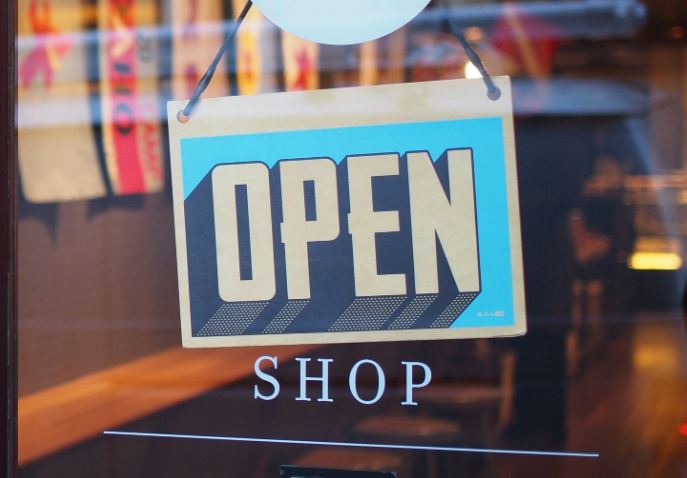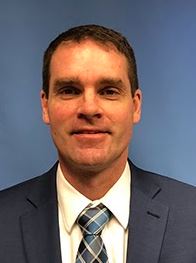
Still Time to Support Michigan Small Businesses
Still Time to Support Michigan Small Businesses in COVID-19 Recovery Efforts Through MEDC Crowdfunding Program
Contact: Kathleen Achtenberg [email protected]
June 30, 2020
The Michigan Economic Development Corporation is reminding Michiganders that there is still time to support small businesses participating in the MI Local Biz community crowdfunding program. Launched in early June, more than 100 campaigns utilizing this crowdfunding for COVID-19 recovery efforts will be expiring over the coming days and weeks, with many still seeking support from the public to meet their crowdfunding goals. MEDC will provide up to $5,000 in matching funds per business to help them as they work to recover from the negative economic impacts of the COVID-19 crisis.
“Small businesses around the state are taking part in the MI Local Biz program and while many businesses have already reached their crowdfunding goals, many more need additional support to help get them to the finish line. This program is a unique opportunity for patrons of these small businesses to help them in a time of need,” said Michele Wildman, Senior Vice President of Community Development at the MEDC. “Michigan’s small businesses and traditional downtowns are a vital part of the state’s economy, and MI Local Biz offers innovative access to capital for those businesses that have experienced a loss in revenue directly related to the COVID-19 crisis.”
Earlier in June, MEDC announced that approximately 100 small businesses around the state were chosen to participate in the MI Local Biz crowdfunding program as a way to raise funds as they work to recover from the negative impact of the COVID-19 crisis. The program builds on the MEDC’s successful Public Spaces Community Places (PSCP) program, which allows residents to use crowdfunding to be part of the development of strategic projects in their communities. Projects that reach their fundraising goals then receive a matching grant from MEDC.
More than 60 businesses around the state are still actively raising funds through the MI Local Biz program – in communities ranging from Houghton in the Upper Peninsula, to Benton Harbor in Southwest Michigan, to Spring Lake in West Michigan, to the Lake Michigan port city of Manistee, to Port Huron at the easternmost point of the state.
Examples of the types of businesses still participating include restaurants/bars/coffee shops, cafes, salons/day spas, yoga studios, historic theaters, retail shops, art galleries, recreation businesses, and many other small businesses retailing products or providing services in a face-to-face physical location within the state of Michigan.
Layla’s Cool Pops in Kalamazoo successfully leveraged MI Local Biz to not only meet but exceed its crowdfunding goal of $5,000. Established in 2016 by then 11-year-old Layla, Layla’s Cool Pops is a youth-owned and operated baking business seeking to “eliminate homelessness one sweet at a time.” Layla’s Cool Pops is becoming a business with a significant community impact. Currently, Layla’s Cool Pops donates weekly to a local community nonprofit whose focus is on providing supports and services to the homeless community and other vulnerable community groups.
“We are truly honored and blessed to be a part of the MEDC/MI Patronicity campaign. The vast community support has completely changed the trajectory of Layla’s Cool Pops and the impact that we will be able to make together,” said Luchara Wallace, co-owner and Layla’s mother. “We are now imagining additional possibilities that might allow us to provide affordable housing sooner than we thought possible and it is all because of the support of our community. Together we will eliminate homelessness one sweet at a time.”
In Marquette, Velodrome Coffee Company was founded with the goal of not only serving its community but supporting coffee farmers around the globe with an emphasis on sharing their coffee and their stories. When the COVID-19 outbreak hit Michigan, Velodrome was experiencing some of its greatest business growth to date. Through the MI Local Biz program, Velodrome also exceeded its $5,000 crowdfunding goal, having raised more than $7,300 from community members to support its future success. Today, the company is looking to reopen its doors, rehire its employees, build an outdoor seating experience and find additional ways to support coffee farmers directly.
“Receiving this grant through our community’s support will be a massive help to Velodrome as we navigate rebuilding from the shutdown caused by Covid-19,” said Velodrome Coffee Company Founder and Co-Owner Brice Sturmer. “We feel overwhelmed with kindness. We’re excited to continue our mission of roasting personally sourced coffees and bringing the stories of coffee farmers across the globe to our customers.”
MI Local Biz allows for a small business to utilize donation-based crowdfunding through Michigan-based crowdfunding platform Patronicity’s existing platform and to receive a 1:1 matching grant from MEDC of up to $5,000. Funds must be used by the businesses for working capital needs to maintain ongoing operations during and through the COVID-19 crisis. MEDC will provide a total of $500,000 in matching grants to the participating businesses statewide.
Individuals interested in learning more and supporting businesses in their communities can visit https://www.patronicity.com/milocalbiz. The page includes a list of all the businesses running campaigns through the program, and there is also a map showing the locations of them throughout the state.
To learn more about MEDC’s COVID-19 response programs and the impact they are having on economic recovery efforts, visit michiganbusiness.org/covid19response. Other resources for economic reopening efforts as well as businesses across Michigan struggling with economic losses as a result of the COVID-19 virus can be found online at michiganbusiness.org/covid19. The MEDC has also developed a FAQ for Michigan businesses and communities at michiganbusiness.org/covid19-faq.
Information around this outbreak is changing rapidly. The latest information is available at Michigan.gov/Coronavirus and CDC.gov/Coronavirus.
###
About Michigan Economic Development Corporation (MEDC)
The Michigan Economic Development Corporation is the state’s marketing arm and lead advocate for business development, job awareness and community development with the focus on growing Michigan’s economy. For more information on the MEDC and our initiatives, visit www.MichiganBusiness.org. For Pure Michigan® tourism information, your trip begins at www.michigan.org. Join the conversation on: Facebook, Instagram, LinkedIn, and Twitter.





